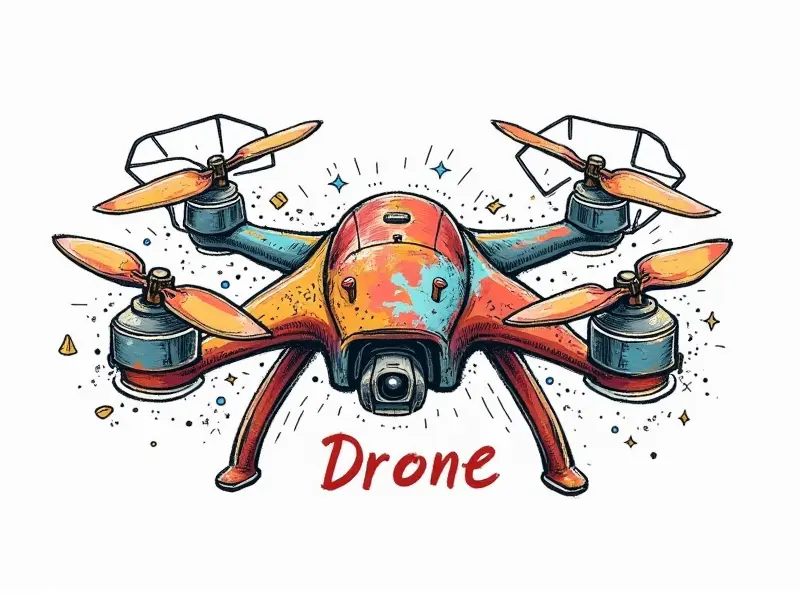RC plane crashes frequently, why?

Why Do RC Planes Crash So Often?
Remote control (RC) planes are a thrilling hobby, but they can also be frustrating when crashes occur frequently. Understanding why these miniature aircraft crash so often is crucial for improving your flying skills and ensuring the longevity of your models.
Preventing RC Plane Accidents: Tips & Tricks
To minimize the risk of crashing your RC plane, it's essential to follow some basic safety guidelines:
- Proper Setup: Ensure that your RC plane is properly assembled and balanced. Check all control surfaces for proper operation.
- Flight Environment: Choose a safe flying area with open space, no obstacles, and good weather conditions.
- Battery Management: Use high-quality batteries and monitor their charge levels to avoid sudden power drops during flight.
Understanding Why Your RC Plane Keeps Crashing
If you find yourself constantly dealing with crashes, there are several common reasons why this might be happening:
- Pilot Error: Inexperienced pilots often make mistakes such as overcorrecting or flying too aggressively.
- Mechanical Issues: Faulty servos, loose propellers, and other mechanical problems can cause loss of control.
- Weather Conditions: Wind gusts, rain, and fog can significantly affect flight stability and maneuverability.
Troubleshooting RC Plane Crashes: Common Issues Solved
Identifying the root cause of crashes is key to preventing them. Here are some troubleshooting steps you can take:
- Check for Loose Parts: Inspect your plane thoroughly for any loose screws, hinges, or other components.
- Test Control Surfaces: Ensure that all control surfaces move freely and respond correctly to input from the transmitter.
- Analyze Flight Data: Review flight logs if available to identify patterns in crashes. Look for common factors like wind direction or specific maneuvers.
Avoiding RC Plane Mishaps: A Beginner's Guide
New pilots often struggle with basic flying techniques, leading to frequent crashes. Here are some tips for beginners:
- Start Small: Begin with smaller and more forgiving models before moving on to larger or faster planes.
- Practice Ground Control: Master the controls on the ground first, using a simulator if possible.
- Learn Basic Maneuvers: Focus on mastering basic maneuvers like takeoffs and landings before attempting more advanced techniques.
RC Plane Crash Prevention: Key Strategies Revealed
To prevent crashes, it's important to implement a few key strategies:
- Regular Maintenance: Keep your RC plane well-maintained with regular inspections and servicing.
- Pilot Training: Continuously improve your flying skills through practice and education.
- Safety Gear: Use protective gear like helmets and goggles to prevent injury during crashes.
Understanding the Most Common RC Plane Failures
Several mechanical failures can lead to RC plane crashes. Here are some of the most common issues:
- Battery Failure: Low battery levels can cause sudden loss of power.
- Servo Malfunction: Faulty servos can result in incorrect control surface movement.
- Propeller Damage: A damaged or improperly installed propeller can affect thrust and stability.
RC Plane Crash Prevention: Essential Tips for Pilots
Pilots play a critical role in preventing crashes. Here are some essential tips to keep in mind:
- Pre-Flight Checks: Always perform thorough pre-flight checks before each flight.
- Fly Within Limits: Avoid pushing your plane beyond its design limits, especially when weather conditions are poor.
- Stay Calm: Maintain a calm demeanor during flights to avoid overreacting and causing crashes due to panic.
Why Your RC Plane Keeps Crashing and How to Fix It
If you're experiencing persistent crashes, consider these steps:
- Analyze Flight Data: Review flight logs or telemetry data to identify patterns in your crashes.
- Seek Expert Advice: Consult with experienced pilots or join online forums for guidance and support.
- Upgrade Equipment: Consider upgrading to higher-quality components if you suspect that inferior parts are causing issues.
RC Plane Safety: Preventing Crashes
Safety should always be a top priority when flying RC planes. Here’s how to prioritize safety and reduce the risk of crashes:
- Follow Manufacturer Guidelines: Adhere strictly to manufacturer recommendations for assembly, maintenance, and operation.
- Use Protective Gear: Wear appropriate protective gear like helmets and goggles during flights.
- Establish Safety Zones: Designate safe flying areas with clear boundaries and no obstacles.
Understanding RC Airplane Crash Patterns
Recognizing crash patterns can help you identify recurring issues. Common crash scenarios include:
- Landing Crashes: Mishaps during landing due to misjudgment of altitude or wind conditions.
- Takeoff Failures: Issues arising from improper takeoff techniques or mechanical failures at the start of flight.
- In-Flight Malfunctions: Sudden loss of control mid-flight caused by system failures or environmental factors.
Conclusion
Flying RC planes can be a rewarding hobby, but it requires diligence and attention to detail to avoid crashes. By understanding the common causes of crashes and implementing preventive measures, you can significantly reduce the risk of accidents and enjoy safer flights. Remember to always prioritize safety, follow best practices, and continuously improve your skills as a pilot.

